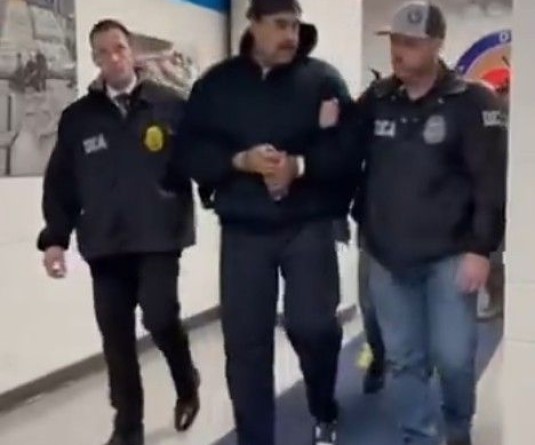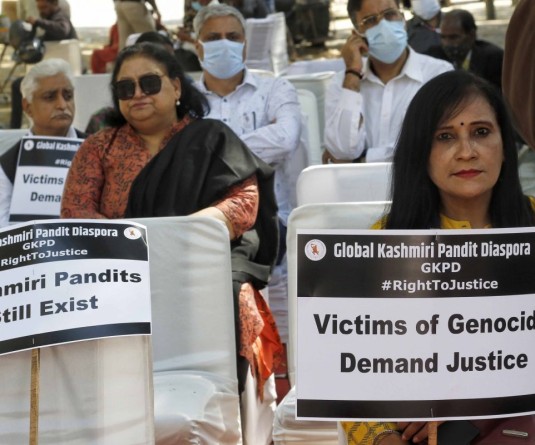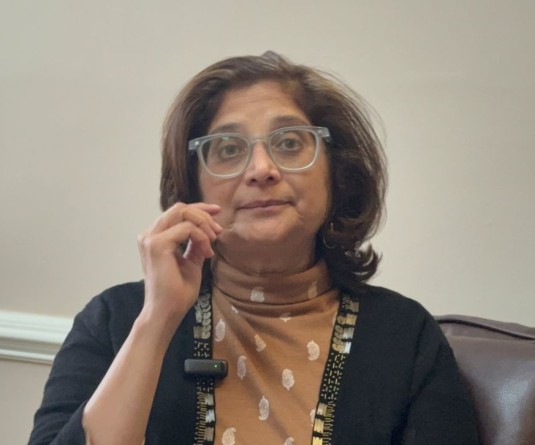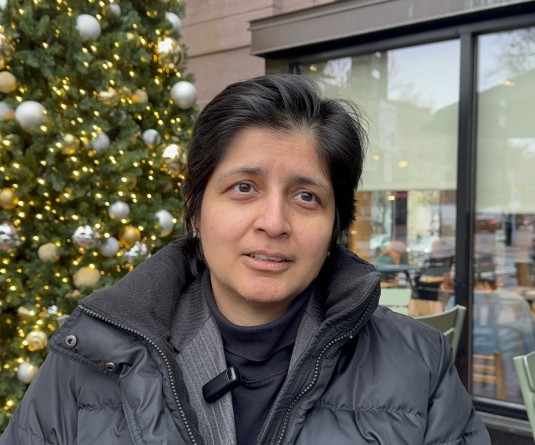New Delhi: Delhi Police bike patrol team on an inspection round in New Delhi during the extended nationwide lockdown imposed to mitigate the spread of coronavirus, on Apr 16, 2020. (Photo: IANS)

New Delhi, July 21 (IANS): It is a matter of great satisfaction that Prime Minister Narendra Modi has been spending plenty of time with the annual conferences of Directors General of Police traditionally convened by the Director of the Intelligence Bureau to review the internal security situation in the country and the law and order management as a vital determinant of it.
Prime Minister Modi has been sharing his thoughts on how to improve and modernise the functioning of the police force in India. At his initiative, the conference is now held outside the national capital in different states which certainly stresses the importance of providing a uniform level of law and order, handling and safeguarding internal security throughout the length and breadth of the country regardless of the differing political complexion of the government at the Centre and in the states.
Democracy is a system of governance by and for the people and it is one of its fundamental requisites that the police representing a coercive arm of the State must be impartial, accessible and humane while enforcing law and maintaining order.
In a multicultural setting like India's and in a situation where the nation was particularly vulnerable to external threats to its internal security, police have to be adequately vigilant on the ground to assist the national intelligence and investigation agencies in countering the danger of narco-terrorism, mafia working for foreign masters and cross-border enemy operations.
The role of police in protecting national security has now become crucially important. Since good policing is a prerequisite for the stability of our democratic state, it is necessary to rectify the persistent flaws in policing on a note of urgency.
At the last DGP conference held at Jaipur, Prime Minister Modi rightly spoke of the need to change the police's mindset by enhancing reliance on data and facts rather than force, building police-public partnerships and creating a positive image of the police among citizens.
Union Home Minister Amit Shah steered the conference on all three days and referred to the challenges of narcotics, cybercrime and a switch over to forensic-led investigations.
He emphasised the need for training police officers in the new criminal laws enacted by Parliament.
An important advance the DGP conference has made is that it has evolved into a national 'think-tank' for discussing such important matters as delegation of decision-making power in the police, striking the right professional relationship between political leaders and police officials, and strengthening the elements of commitment and empathy in functioning of the police.
The conference now deliberates on a range of security-related issues, including border management, cyber threats, danger of radicalisation, counter-terror operations, identity frauds, misuse of Artificial Intelligence and weaponisation of social media.
Because of the personal association of the present Prime Minister Modi and Home Minister Amit Shah with the DGP conference, this event has become strategically important for national security and helped to keep law and order management and internal security issues above politics.
In the environment of deepening caste and communal divides noticed in the aftermath of the recent Parliamentary election, the threat of communal militancy fomented by Pakistan's Inter-Services Intelligence and the danger of separatism in Punjab instigated by anti-India lobbies, particularly in the West, may get aggravated.
It has to be appreciated that Prime Minister Modi has himself prescribed a 'whole of government' approach to counter 'radicalisation' by engaging intellectuals, social media and even civil servants within the ambit of the constitutionally recognised principle of harmonious coexistence of diverse religious communities.
An invaluable suggestion made by Home Minister Amit Shah at the last DGP meet was that a conference on 'urban policing' would be organised to establish a common system of policing in all municipal areas so that all vulnerable groups could be taken care of and protected against unscrupulous elements.
Major cities of India already had a Police Commissionerate system and Home Minister Amit Shah's recommendation would go a long way in setting a common benchmark of efficient policing in all urban centres, particularly in tackling the menace of human trafficking, organised gangs using children for begging and crimes against women.
In a democratic state, the police should be an instrument for safeguarding the human rights of citizens and not merely protecting them against conventional crime.
A primary responsibility for providing a uniform level of law and order management throughout the nation -- notwithstanding the federal character of Indian polity -- lies on the officers of the IPS and IAS who manned the so-called 'steel frame' of governance everywhere.
They got the police and administrative machinery to deliver regardless of the political stamp of the government and set their parameters of constitutional propriety about not misusing legal authority.
Even though police had been defined as a 'state' subject it had to be realised that political parties would come and go but the 'steel frame' that delivered on valid policies in service of the people was there in continuity -- enjoying a certain guarantee of service and perks.
Officers of IAS and IPS are recruited by the Centre on the strength of a merit-based national-level competitive examination, trained for their professional duties and then allotted to the states on an understanding that their performance graph would be broadly tracked by the former.
There is no equivalent of IAS and IPS in any other major country in terms of providing a 'career in leadership' in administration from the very beginning. The young officers do join the civil services on a note of high morale but unfortunately face a dampening of enthusiasm as they witness flaws of political interference and lack of fairness flowing top down.
The Centre should actively explore the ways and means of acquiring a say in the appointment of the Chief Secretary and the DGP of the state -- the Supreme Court has already spoken against the practice of appointing 'Acting DGP' by the state government out of a political motivation and defined the procedure involving Union Public Service Commission for forming a panel for selection to the post of DGP.
This could of course be replicated for the appointment of Chief Secretary as well. The Centre needs to pursue this more actively in the national interest.
A secular democratic state rests on the foundations of equality before the law and the welfare of the poor and the weak.
Indian Constitution defines the Fundamental Rights of citizens but expects them to fulfil some duties towards the state as well and these include an obligation to promote patriotism, safeguard public property against violence and protect the sovereignty and integrity of India.
Citizens should be willing to extend legitimate help in the prevention and investigation of serious crime and this will be made possible only if the police inspire trust in the law-abiding people. Unfortunately, the police station -- the unit of police establishment closest to the ground -- has not improved its working and responses to the public in terms of entertaining complaints, abstaining from the use of 'third degree' and eliminating corruption in its ranks.
The Indian Police Service has not succeeded in affecting these basic improvements in the functioning of the police station to the required extent even after decades of its existence and this should be a cause for concern for its leadership.
The latter should move fast to improve things since there are testing times ahead for the police because of an expected increase in caste, community and regional tensions, rise in cyber crimes and intensification of the adversary's covert operations designed to weaken India's internal security.






